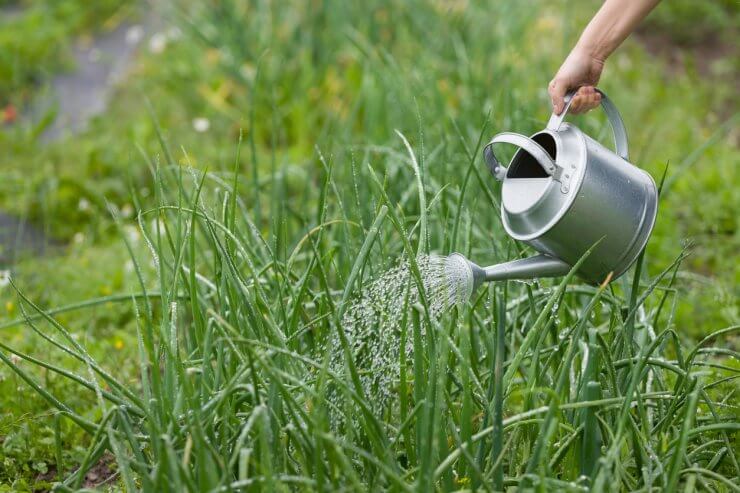
Watering onion plants
Onions need consistent watering, especially during the growing season—but you don’t want to soak them. Too much water is as bad—or worse—than too little. About an inch a week is a good idea. Water once or twice a week, unless it’s particularly dry in your area. Just keep an eye on your onion plants and don’t let them go thirsty. If you have sandy soil, you’ll have to water more often. You can check the soil moisture by sinking a trowel into the soil near your plants. If the blade is clean and dry when you remove it, you need to water more. If your trowel has some soil clinging to it, then your soil is adequately moist. You can stop watering once your onion bulbs have reached their full size and the plants begin to topple over. But until then, keep watering!
Once the onion plants are tall enough, you can lay down some mulch around the plants, in a layer about 2 inches deep. This will do two things: it will lock in moisture; and it will cut off the light to any weeds that are working their way out of the soil. Straw is a good choice for mulch—straw, not hay. It will also make good compost at the end of the season. Other good mulch choices include grass clippings, shredded leaves, or cured and shredded wood mulch.
Tip: Early morning is the best time of day to water your onion plants. Avoid watering during the evening or night; that can encourage the growth of mold and mildew.
Rainwater is best for your garden plants. If you can collect rainwater, your onion plants will benefit from that! A lot of communities offer discounted prices on rain barrels. They’re easy to set up, and just about as easy to put on “pause” if you live in an area with cold winters. There’s even a special downspout attachment you can get to direct the rainwater right into your barrel.
When you properly water your onions, you’ll have healthy plants and a good harvest.
How often do you water your onion plants? And what time of day do you water? Please tell us how you ensure that your onion plants get the right amount of water.


 Previous
Previous


Drip irrigation will improve the yield and quality of your onion crop.